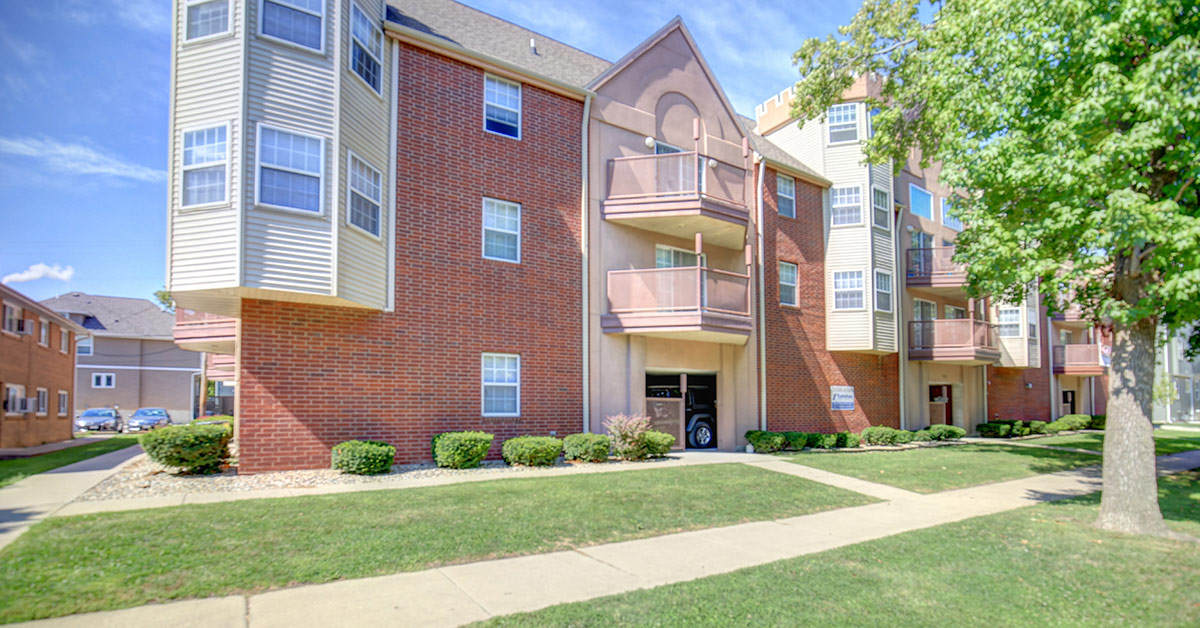Sublease? Re-rent? Legal transfer of liability? Utility cap? Wondering why there’s not a class offered in leasing an apartment? We’ll add that to the list of things we wish we learned in school (right behind paying taxes, personal banking and writing checks, health insurance, life insurance, and many others).
As local property management companies at the University of Illinois start leasing for the following Fall, all the terms and options can become overwhelming and confusing! We’ve broken down (Cliff Notes, if you will) some of the most important things that UIUC students should look for when renting an apartment. Happy apartment hunting!
First things first, we’ll start with the legalese involved in renting an apartment. In its most basic form, a lease is “a contract by which one party conveys land, property, services, etc to another for a specified time, usually in return for a periodic payment.” Thus, signing a lease is signing a legal contract which typically details the parties involved, a start and end date, total and/or monthly rent amount, and other rules and regulations of the agreement. The tenant, or individual renting the apartment, is called the Lessee; the landlord, or property manager, is referred to as the Lessor. This is important when reviewing the lease to make sure you understand who is responsible for what (ex: utilities).
Sample Lease
Pro Tip: Ask to review a sample lease (often published on the company’s website) before signing your lease for a specific apartment. If you have questions, ask before signing! It is much better to clarify before entering a binding document than have a misunderstanding months into your stay.
More legal jargon… sublease, re-rent, lease transfer. Basically, what’s my get out of jail card here? I’m studying abroad, transferring schools, whatever the situation is and will no longer be living in the apartment I rented. Many companies offer subleasing for their tenants. As the original tenant, you are still legally (and most importantly, financially) responsible for the apartment. In many cases, you are also responsible for finding a replacement tenant, or sublessee. Most companies will require that your sublessee is approved by their qualifications (background check, for example) but the agreement then lies between you and the new occupant. Another scenario to get out of your lease may be a re-rent or lease transfer where you actually come off of the legal contract and transfer it to a new individual. In this case, a new security deposit is usually due, a new lease is signed, and your liability is released. Again, companies may require that you find this replacement tenant and they must be approved through the standard application process.
Ask for Leasing Options
Pro Tip: Check your lease or ask the Leasing Agent for more information on options available to you if you need or want to move out of your apartment before the lease term is up. Be sure to clarify YOUR responsibility or what assistance, if any, the company provides in securing a new tenant.
Second, we’ll talk about by bedroom leases. The biggest indicator on the kind of lease you’re signing for a unit with roommates is how many people are listed on the top of the lease as “lessees.” Some leases are individual to you by bedroom, meaning you are only signing a lease, and thus responsible for, your bedroom. Other leases are signed by unit with all roommates listed together on ONE lease. In this case, if your roommate spends all his rent money on Illini T-Shirts, ALL roommates are equally responsible for paying rent. By bedroom leases on the other hand, split the total rent into thirds, fourths, and you are only responsible for YOUR portion. More and more campus properties are switching to this cleaner, individualized model.
Understand Your Responsibility
Pro Tip: Make sure you understand your individual responsibility to the lease. If it is NOT a by bedroom lease, make sure you choose roommates who will pay rent on time 😊
Utilities are another important consideration when leasing an apartment. The obvious, most basic ones are electric and water. Some older buildings may have gas heat, which could be another monthly expense to check on. Cable and internet may also be offered through the building itself or through a partnership with a local provider. In some cases, you may still need to pick up your own equipment or pay for additional upgrades beyond basic cable, for example.
Watch Utility Cap
Pro Tip: Be mindful of a “utility cap.” This is the amount OVER which charges will be billed back to you. For example, if you have a $90 utility cap, but your February bills come in at $125 because there was a blizzard, you will be responsible for paying the $35 difference.
Late fees… leasing detention, a necessary evil. Most companies offer online scheduled payments monthly. This is a great way to avoid late fees! Schedule your payment for the 1st or 2nd of the month and you don’t even have to think about it each month. Some late fees are structured as a percentage of the outstanding balance, some are a flat fee, and others are a daily compounding fee.
Check Your Lease Clause
Pro Tip: Check your lease clause on late fees to understand what you’ll be charged if your payment is late. Also look for the grace period or how late in the month you can pay before late fees are charged, then set up your auto pay accordingly.
Last but not least, insurance. You don’t need it til you need it. Most leases specify the amount of insurance required for minimum coverage. Some companies impose their own form of renter’s insurance to cover THEIR property if you don’t provide your own coverage. Renter’s insurance covers YOUR items in the unit in the event of theft, water damage, or other issues.
Renter’s Policy Tip to Save You Money
Pro Tip: Contact your car insurance agent to see about adding a renter’s policy at a reduced bundled rate. Make sure you consult your lease for coverage requirements and in most cases, provide a copy of your policy to your landlord.
Students with Questions
If you are a UIUC student planning to lease an apartment in Champaign – Urbana this fall and you have a question about an area not covered in this article? Check out our FAQs or feel free to contact a Leasing Agent.
To view our 2019-2020 availability, click here.


